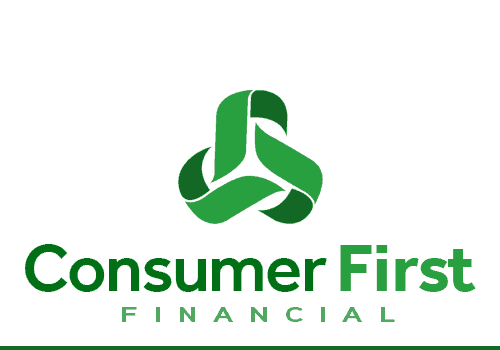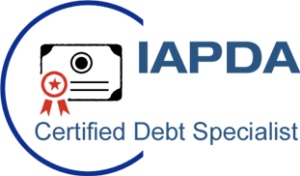
I wish I spent more time retirement planning: An all too common wish.
Regardless where you live or what work you engage in, you always have a plan to successfully retire with the means to satisfy your needs and wants. Perhaps go on a tour across Europe or Africa, or spend time on a cruise ship voyaging across the Pacific – we all have hopes and dreams that we would one day like to accomplish. But will you have the finances to live your golden years to their fullest potential? Debt can quickly deter your dreams without proper retirement planning.
Of course, retirement isn’t as simple as ending a contract and going off to do what you would like. There’s enormous amounts of planning that go into properly retiring from your official position. One such effort is addressing the enormous amount of debt you may have incurred in your younger years. This is particularly true with credit cards, as they are a high interest and often long-term form of debt. One of the greatest barriers consumers face going into retirement is the debt incurred through credit cards.
An overwhelming amount of data shows people retire much later than their expected years due to their financial situation. Many of these near-retirees are still living paycheck to paycheck. People use their paychecks for basic living needs; constant cash flow or savings isn’t always an option. This might seem a pessimistic peek into the future, but you can avoid it with proper retirement planning and taking full advantage of retirement saving tools.
What are the top types of debt for retired Americans?
According to the Federal Reserve Bank of New York, the average debt held by senior citizens (post-retirement) has increased at a rate of 543% over the last two decades. This kind of statistic suggests why Americans aren’t able to retire at the age they intend to. It also shows a common inability to
Ohio State University conducted a study on which types of debt trouble seniors the most. Their research discovered a high propensity towards credit card debt, followed by mortgage, auto loans and student loans.
- 30% of older adults suffer the brunt of debt through credit cards.
- 17% have debts accumulated from a mortgage, which includes home equity loans.
- 11% are indebted from student loans and medical bills, with health insurance only covering a small proportion of payments.
- The rest suffer through a combination of all or some of the aforementioned debts.
The reason behind senior citizens having so much accumulated debt isn’t as complicated as you might think. It’s because most tend to shove off their payments until the very end. We prefer to spend more than we like to save and only face the consequences when the bill comes. The problem is, interest and possible fees have been collecting on that debt. Now, it’s impossible to pay off for most people on a fixed income. This is exemplified by the New York Federal Reserve disclosing that student loan debt increased 886% in per person debt for elderly adults.
How consumers on a fixed income can handle retirement planning.
Most public sector employment focuses on fixed incomes for its workers. This leaves the average consumer with little leverage to pay off their existing financial debts. Moreover, retirement would also mean that your pension is kept at a fixed amount. Further worsening one’s debt crisis through prolongment.
This prolongment gets progressively worse as you incur interest but do not have the financial means to pay a lump sum. Keep in mind, the average interest rate for credit cards is about 17%. When making minimum payments, the majority of your payment goes to interest. You’re brought into a circle of making unnecessary interest payments with little to no money left over.
Consumers on fixed incomes can only find a sustainable method of paying off their debts if they do proper financial planning early. This does mean sacrificing certain discretionary spending. This includes clothing items and merchandise, while also sticking to a budget.
The best way to handle your debt for the best retirement.
The best way to eliminate debt before while retirement planning is by facing it while you still have the ability to save. As an average consumer and worker, you need to be responsible with the money that you have and invest it into paying off your existing debts. Now you have a manageable amount of debt that can be reduced before you enter retirement.
Another way of counteracting debt is through a savings account prior to retirement. You should always redirect your focus from spending to saving. Especially if spending is done merely out of pleasure and indulgence. Instead, open up a savings fund for your retirement and save a small percentage of your income as you work. This way you will not be entirely dependent on your fixed income source. And, you’re more likely to have the financial means to do what you want post retirement.
If you do not work to responsibly handle your finances and debt, the inevitable result will be you having to work after retirement. In fact, according to an article published by Reuters, you will most likely have to work longer until you can rest in a bed without debt.
How to handle different types of debt.
There are options for various types of debt retirees may be facing. It’s always best to prepare for your retirement properly, which includes paying off debt. But, if you’re like many Americans, it simply wasn’t possible. You still have options.
Reverse Mortgage
One way to counteract mortgage debts or pay off other debts is through a reverse mortgage. This is a unique type of loan available to senior citizens over the age of 62. They can borrow a sum of money against their house’s equity without monthly payments. The amount you take is tax-free and the loan is be repaid only if you pass away or choose to sell your house. Through a reverse mortgage, retirees can access some funds for paying off their existing debts, whether it’s related to mortgage loans or other types of debt.
Debt Settlement
Often misunderstood, debt settlement is actually the fastest way to get rid of unsecured debt. This is the best option for seniors struggling with credit card, personal loan, repossession, or other unsecured debts. A reputable company will professionally negotiate your balances for maximum savings (they get paid based on the amount they save you, a good incentive for them to do a good job.) This method will temporarily ding your credit, but it’s quite easy to recover from once the high interest debt is gone.
Hardship-Based Federal Student Loan Repayment Plans
Even during retirement, the burden of student loan debt weighs heavily on seniors. This is where hardship-based repayment plans come in. This is considerably helpful to those with fixed incomes and less financial means to pay off loans. These loan repayment plans consider your gross income and family size to determine a decrease in your accumulated student loans. In addition, they can offer a deferment of payments or loan forgiveness depending on your situation.
Why your should focus on your credit card debt first during retirement planning.
Credit card debt is currently the top debt retirees struggle with. It’s quite clear that credit card debts are the hardest hitters among all the types of debt.
The reason for this is due to the high interest rates which come with credit cards. Due to the flexibility and convenience of credit cards, we tend to make big purchases on our account. Only later realizing the interest on that purchase will cost you significantly. If you pay your balance in full each month, you have nothing to worry about. But if you tend to make small or minimum payments, credit card debt becomes life-long debt.
What we do unknowingly in our youth comes with the adverse repercussions in our older years. Credit card payments, if not paid in full as we use them, can accumulate into inordinate sums.
It’s not too late to start retirement planning, regardless of debt.
Most Americans actually have little clue how to prepare for the financial aspect of their retirement. This is why we tend to engage in reckless spending in our youth. Now you’re retired and ready to enjoy your golden years. What ensues is a quick realization that you cannot go on the cruise you’ve wanted to for so long or take that journey across the world as you’d hoped for. But, the future doesn’t have to be this bleak if you choose to be responsible with your debts and savings from the start. Simply putting little amounts in your retirement account or paying off your debts over time can go a long way to finding your happy, debt-free retirement.
Your partner in debt relief,
Consumer First Financial





